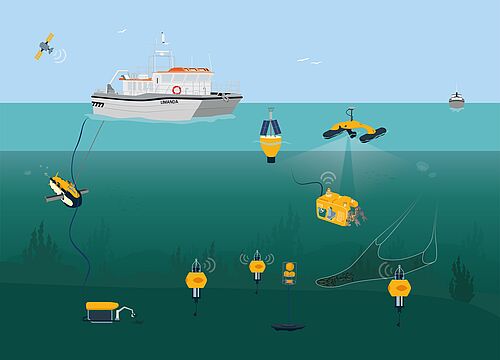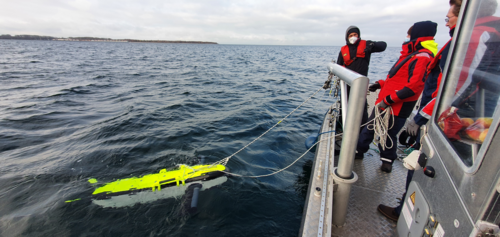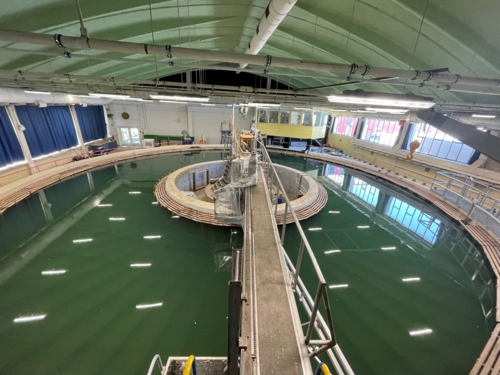With the Ocean Technology Campus (OTC), an international center for underwater technology is being established in Rostock. Various aspects will be covered - from the development of innovative automated underwater platforms to automated monitored aquacultures and integrated approaches in the promotion of diversity and young talent for science and companies. This is because there is a particular lack of qualified young talent in the growing industry.
Where does current marine technology stand and what can be done with it? - Fifteen selected participants will be able to find out for themselves from August 22 to September 2. The two-week intensive course will focus on the latest technologies and high-tech processes for sustainable, future-oriented use of the coasts and seas. The aim of the participating lecturers from the OTC cluster projects is to give participants a practical insight into interdisciplinary work in the field of marine and underwater technology. Thus, in addition to an excursion with the research catamaran Limanda, the program also includes project days in which the participants will float their own constructed underwater vehicle in the current pool of the University of Rostock and equip devices with various underwater sensors themselves. Professor Sascha Kosleck, Chair of Marine Engineering at the University of Rostock, is looking forward to the summer school: "On day 2, we will build functional miniature gliders and test them in the university's circular flow channel. Underwater gliders are unmanned diving robots that use the same principle for locomotion as a glider does for flight. Here, participants will gain both theoretical and practical insights into the world of autonomous underwater technology and learn about the technical challenges that can arise in the development and operation of underwater vehicles."
The summer school is coordinated by the OTC Ocean Talents project of the Department of Maritime Systems at the University of Rostock. Working as a polar researcher herself, project leader Dr. Heike Link knows from her own experience: "With the summer school, we give young people with a wide variety of backgrounds from science and industry new practical skills, theoretical food for thought and personal experience on the subject of ocean technology. The intensive interaction during a summer school awakens enthusiasm and creates visions that may later be implemented. At the same time, important networks are formed that often last a lifetime."
Dr. Helen Morrison from the University of Rostock has coordinated the summer school program with the individual partners in the OTC Future Cluster: "The summer school reflects the entire OTC on a small scale. I am pleased that we can offer participants an insight into the diversity of marine and underwater technology and I am excited to see what we will also learn from them in return."
More about the Ocean Technology Campus
In the coming years, the campus will be built in Rostock's fishing port, initiated in a lead role by the Fraunhofer Institute for Computer Graphics Research and several companies based in Rostock.
In addition, the research association "Future Cluster OTC Rostock" received an award last year in the nationwide competition of the Federal Ministry of Education and Research (BMBF) "Clusters4Future". In addition to the University of Rostock, numerous other Rostock research institutions and companies are involved in this project, which consists of a total of eighteen projects. The institutions and companies involved want to prepare for a future in which the potential of the seas and oceans can be used in all their diversity while maintaining the principle of sustainability.
Media representatives are cordially invited to attend the summer school for a few taster sessions.
Registration is requested at pressestelle@uni-rostock.de
Further links
About the OTC Summer School: www.inf.uni-rostock.de/root
About the research association "Future Cluster OTC Rostock" at https://www.clusters4future.de/die-zukunftscluster/die-zukunftscluster-der-ersten-wettbewerbsrunde/otc-rostock.
The Ocean Technology Campus www.otc-rostock.com is being built in the fishing port.
Contact:
Dr.-Ing. Helen Morrison
University of Rostock
Interdisciplinary Faculty/Department Maritime Systems (MTS)
Tel: +49 381 498-8923
Translated with www.DeepL.com/Translator (free version)



